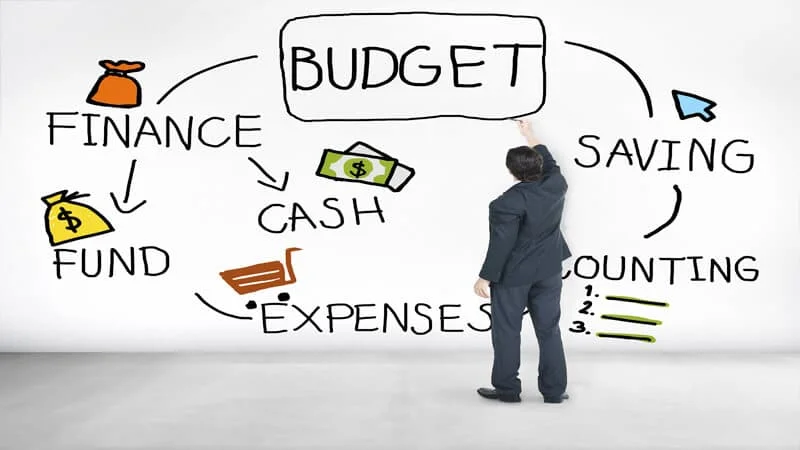Budgeting has long been the foundation of personal financial health, but in 2025, it looks nothing like the old spreadsheets or notebooks of the past. With rising living costs, unpredictable markets, and increasingly digital lifestyles, budgeting has evolved into something more dynamic—more personal, more automated, and more intelligent.
Gone are the days when budgeting meant simply tracking your expenses at the end of the month. Today, it’s about building awareness, setting financial priorities, and leveraging technology to make smarter money decisions in real-time. Whether you’re a student learning to manage your first paycheck, a freelancer navigating irregular income, or a young professional saving for long-term goals, mastering the art of budgeting in 2025 could be the smartest move you make this year.
Why Budgeting Still Matters (Now More Than Ever)
The economic landscape in Europe and across much of the developed world has shifted dramatically over the past few years. Inflation across the Eurozone averaged 3.2% in early 2025—still higher than pre-pandemic norms. Housing costs have surged in major cities, while interest rates remain elevated compared to the 2010s. In this environment, failing to plan your spending is more costly than ever.
A 2024 survey from ING Bank showed that over 65% of people across Europe feel their purchasing power has decreased. And yet, only about 1 in 3 uses a formal budget to manage their income. That disconnect reveals a major opportunity—not just to cut costs, but to realign financial habits with actual life goals.
Budgeting isn’t about restriction; it’s about clarity. It gives you control in a world of economic noise.
The Rise of Digital Budgeting Tools
Budgeting in 2025 is easier, more accessible, and smarter thanks to a new wave of personal finance apps and platforms. Tools like YNAB (You Need A Budget), Mint, Revolut, N26, and Money Dashboard are now part of daily life for millions. They sync with your bank accounts in real-time, categorize spending automatically, and even project your future balances based on spending behavior.
Revolut, for instance, allows users to set “pockets” for different savings goals and assign monthly budgets per category. YNAB encourages users to give “every euro a job,” forcing intentionality with each spending decision. Meanwhile, apps like Buddy or Emma offer collaborative budgeting—great for couples or roommates.
AI is also playing a role. Some fintech apps now use predictive analytics to alert you if you’re likely to overspend or suggest ways to reallocate unused funds toward savings or debt payments. These aren’t just tools—they’re smart companions that adapt to your habits.
Budgeting Techniques That Work in 2025
Beyond the apps, people are adopting more nuanced approaches to budgeting—designed to fit different lifestyles. The classic 50/30/20 rule (50% needs, 30% wants, 20% savings) is still popular, but many are shifting to more flexible or “zero-based” strategies that reflect fluctuating incomes and expenses.
Zero-based budgeting, in particular, has grown in popularity among freelancers and gig workers. Every euro is assigned a role, ensuring that no money “leaks” from your system. This method encourages mindfulness over automation.
Envelope budgeting—once done with literal cash envelopes—is now digitized. Several apps simulate this model, helping people visually separate money for rent, groceries, travel, or investing.
For higher-income earners or FIRE (Financial Independence, Retire Early) followers, percentage-based strategies like “pay yourself first” (saving before spending) are driving savings rates as high as 30–40%. These aren’t unrealistic numbers. Even saving 10% consistently—thanks to automation—can make a major difference over a decade.
Budgeting with Purpose: Linking Habits to Goals
One key shift in 2025 is that budgeting is no longer seen as separate from investing or wealth building. It’s the entry point.
Saving € 300 a month might not sound life-changing—but if invested in a diversified ETF returning 7% per year, that’s over € 51,000 after 10 years. Budgeting is what makes that investment possible. It’s what funds your emergency account, reduces your debt burden, and builds the cash flow needed to reach bigger goals—whether it’s homeownership, financial independence, or early retirement.
Personal finance is no longer just about discipline—it’s about designing a life around your values. Budgeting is the tool that gets you there.
Your Budget, Your Freedom Plan
In a world where the cost of living is rising and financial distractions are everywhere, budgeting is not just a useful habit—it’s a critical skill. The good news? It’s never been easier to get started.
By combining the power of digital tools with a personalized approach, anyone can take charge of their finances—no matter how small their income or how big their goals. Whether you’re saving for a trip, paying off a loan, or building long-term wealth, your budget is the roadmap.
In 2025, budgeting isn’t about saying no. It’s about saying yes—to clarity, to confidence, and to the life you actually want.

